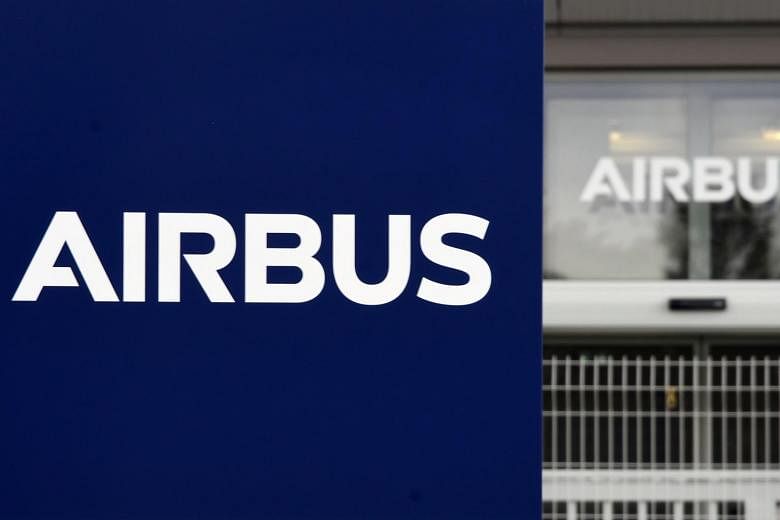WASHINGTON (BLOOMBERG) - The United States stepped up pressure on Germany and France with extra tariffs on some of their goods, a move designed to squeeze the European Union into settling a long-running dispute over illegal subsidies to Airbus.
In a statement in Washington on Wednesday (Aug 12), the US Trade Representative's (USTR) office said it is removing from the tariff list certain products from Greece and Britain, and adding an equivalent amount of trade from France and Germany.
The change is effective from Sept 1 and will apply to French and German jams as well as butchers' and mincing knives, which will be subject to a 25 per cent duty.
"The EU and member states have not taken the actions necessary to come into compliance with WTO decisions," Ambassador Robert Lighthizer said in the statement. "The United States, however, is committed to obtaining a long-term resolution to this dispute."
The amount of products subject to countermeasures remains at US$7.5 billion (S$10.3 billion) and the tariff rates stay at 15 per cent for aircraft and 25 per cent for all other products, the USTR said.
Airbus said it profoundly regrets the US decision to maintain the tariffs despite Europe's recent actions to achieve full compliance "at a time when aviation and other sectors are going through an unprecedented crisis".
The company said in a statement: "Airbus trusts that Europe will respond appropriately to defend its interests and the interests of all the European companies and sectors, including Airbus, targeted by these tariffs."
The announcement prolongs the burden of import taxes on American businesses and consumers while increasing the pain on transatlantic allies just as the global economy tries to claw back from a steep downturn tied to the Covid-19 pandemic.
US retailers, restaurants and importers that are struggling to stay afloat after nearly six months of restrictions and lockdowns had pleaded with USTR for tariff relief.
"There is clear evidence that the US beverage alcohol industry has been negatively impacted as a direct result of these tariffs, which is now being compounded by the impact of restrictions related to preventing the spread of Covid-19," a group of US trade associations wrote in a letter to USTR, one of nearly 24,000 public comments submitted in the case.
The Trump administration won a long-awaited judgment from the World Trade Organisation last October stemming from a dispute between Airbus and Boeing that dragged on for more than 15 years. The ruling authorised tariffs on a record US$7.5 billion in European imports.
The EU, meanwhile, is waiting for a WTO decision to come as early as September that may allow for retaliation against the US. Brussels has asked for its own multi-billion-dollar award in a separate case that found Chicago-based Boeing received illegal subsidies.
EU trade chief Phil Hogan last month stepped up a call for the US to negotiate a settlement to the transatlantic dispute. Failing to resolve the issue will force the 27-nation bloc to impose tit-for-tat tariffs on American goods and ultimately leave both sides weaker.
"We should sit down and talk in the next couple of months," Mr Hogan said during an online event organised by the Carnegie Endowment for International Peace.
"Otherwise, we're going to be putting tariffs on each other for the rest of this year."
Mr Lighthizer last month told Chatham House that a settlement with the EU must "require commitments to not do it again but also paying back some element of the subsidy". Just how much payback and in precisely what form remains unclear. So far, Washington has rejected at least three offers from Brussels for a settlement because the EU and US "don't have the same number", he said.
Britain has been caught in the crossfire. British companies are subject to US tariffs because they were part of the EU during the Airbus subsidy years, but Prime Minister Boris Johnson's government is largely frozen out of any effort by Brussels to negotiate a settlement now that Britain has left the bloc.

